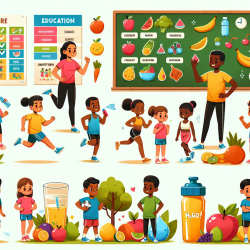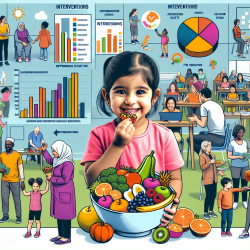Empowering Youth: A Revolutionary Approach to Combat Childhood Obesity
Childhood obesity is a growing concern, with over one-third of U.S. school-age children being overweight or obese. This condition poses risks for diabetes, heart disease, and reduced life expectancy. The recent research on the H2GO! program, a youth empowerment intervention, provides a promising strategy to address this issue by reducing sugar-sweetened beverage (SSB) consumption among youth.
Understanding the H2GO! Program
The H2GO! program is a cluster randomized trial designed to empower youth aged 9-12 from low-income and ethnically diverse backgrounds. The program is conducted in partnership with the Massachusetts Alliance of Boys and Girls Clubs (BGC). It involves 450 parent-child pairs across ten BGC sites, with half receiving the intervention and the other half serving as a control group.
The intervention consists of 12 group-based sessions over six weeks, focusing on reducing SSB intake and promoting water consumption. The innovative aspect of H2GO! is the use of youth-produced narratives to facilitate empowerment and parental engagement.
Key Findings and Implications
The study aims to measure outcomes such as body mass index z scores (zBMI), beverage intake, and youth empowerment. Initial results from pilot studies indicate significant reductions in SSB intake and zBMI, alongside increased water consumption.
Empowerment Theory (ET) underpins the program, emphasizing intrapersonal, interactional, and behavioral processes. This framework helps youth develop critical consciousness and agency, enabling them to make informed decisions about their health and environment.
How Practitioners Can Implement These Findings
- Integrate Empowerment Strategies: Encourage youth to create and share narratives about their health experiences. This can foster a sense of ownership and motivation to change behaviors.
- Focus on Community Partnerships: Collaborate with local organizations like BGCs to reach a broader audience and leverage existing resources.
- Utilize Structured Programs: Implement structured, evidence-based interventions that target specific behaviors, such as SSB consumption, to achieve measurable outcomes.
Encouraging Further Research
While the H2GO! program shows promise, further research is needed to explore its long-term effects and potential scalability. Practitioners are encouraged to conduct similar studies in different settings and populations to validate and expand upon these findings.
To read the original research paper, please follow this link: A youth empowerment intervention to prevent childhood obesity: design and methods for a cluster randomized trial of the H2GO! program.










